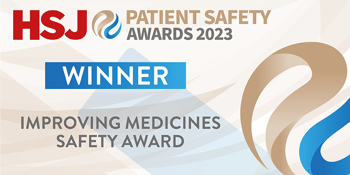Inhaler prescribing errors: Identifying risks and improving patient safety
Thursday, 28 September 2023

Background
Inhaler prescribing errors are frequently overlooked, leading to duplicate inhaler ingredients from the same drug group being prescribed and an increased risk of adverse effects for the patient. The MLCSU Central Lancashire medicines team conducted an audit to determine the scale of inhaler prescribing errors and identify patient harm. The team aimed to inform primary care clinicians and investigate the reason for the prescribing error while sharing learning across all sectors of the ICS and preventing errors from occurring in the future.
Action
To assess the extent of inhaler prescribing errors, the MLCSU medicines team created three EMIS searches to identify patients prescribed inhalers containing duplicate ingredients from the same drug group. For example, two long-acting beta agonists, two antimuscarinics or two inhaled corticosteroids. The team then completed an audit template in 47 GP practices, covering a total of 393,262 patients.
Patients identified with inhalers containing duplication from the same drug group were referred to their practice clinicians for a respiratory review to discuss inhaler use and stop the duplication. The audit excluded patients intentionally prescribed higher doses of inhaled corticosteroids for severe asthma or those requiring refill prescriptions.
Impact
The audit identified that 360 patients were prescribed inhalers with duplicate ingredients from the same drug class. Of these, 18% were actively using duplicate inhalers, with 7 patients at high risk, experiencing side effects, requiring admission or referral. A third of patients had a respiratory review recorded, but the duplication was not identified or removed.
The audit also revealed that 64% of errors were due to general practice prescribing systems, highlighting a need for improvement. Through this project, stopping inhalers with duplicate ingredients generated £22,789 in annual savings, reduced waste and carbon emissions.
The project raised awareness of the risks of duplicate inhaler prescribing across GP practices, hospitals and community pharmacy. The MLCSU medicines team delivered training sessions, issued prescribing newsletters, created a tool to reduce complexity of inhaler prescribing and dispensing, and completed patient case studies. The project made significant improvements to inhaler prescribing and reduced associated side effects across Central Lancashire, leading to substantial cost savings and improved patient care.
The audit based on identifying duplicate inhalers was one of the best audits I have come across in a long while. It picked on a very common error that GPs make especially when issuing meds. We take inhalers very casually and usually don’t think much in issuing inhalers or restarting one. It was interesting to note how patients develop side effects from the combination use which all went away on stopping use. Good job team. Well done. Has certainly changed my practice as a GP.
Dr A. Ashfaq, GP
